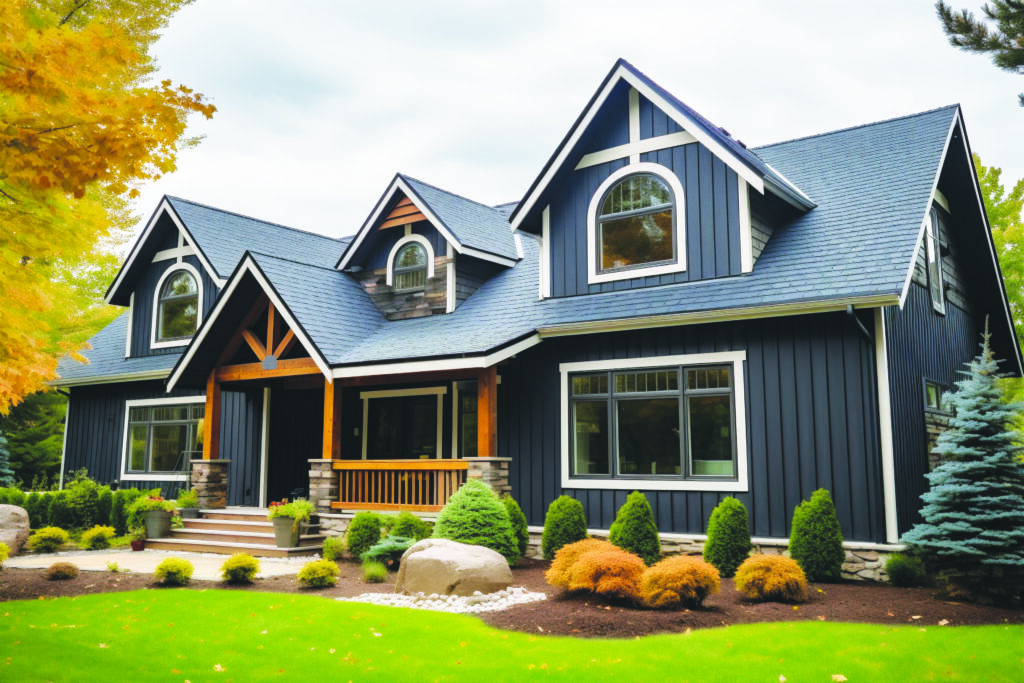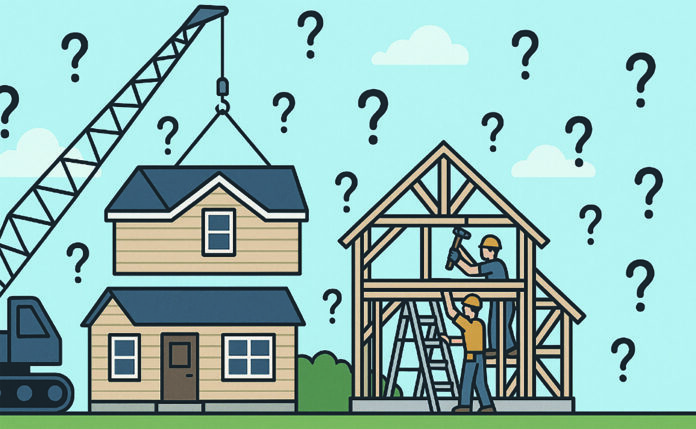The answer will depend on your customers and their priorities.
Every successful marketing strategy needs a clear message that speaks to a well-defined target market. With this in mind, a modular homebuilder must decide: should this message include the construction method, or should it limit its focus to the features of the home?
A marketing focus on features of the home would include things like available floor plans, ability to customize and options offered. A focus on how the home is built would be one that promotes the modular construction method. This may not seem like that big of a deal, but in today’s world of paid searches that depend on keywords and SEO, it’s important.
To simplify the choice: do you tell your target market that you build modular homes or simply that you build homes? At the heart of this decision is the word “modular.” What does it mean to your prospective customers? Do they view it as a stigma or as a desirable quality?

Many people in and around our industry pretend that the word modular has a universally positive connotation in single-family homebuilding. My experience has been different. To the general public, modular homes can sometimes be viewed as offering less quality than site-built homes.
Potential homebuyers often equate our products with manufactured homes, which offer fewer features and are built to less-strict code requirements. Much of this misunderstanding stems from the simple fact that manufactured homes and modular both start with an “M”. As ridiculous as that sounds, it’s a factor. In fact, it’s so much of a factor that even professionals such as loan officers, appraisers and real estate agents — people who should know better — routinely confuse the two.
So, should you promote modular construction in your marketing, or not? The answer is that it depends on what and where you are building. At Griffith Homebuilders, the path we choose is determined by what we’re building and for whom. Below are the criteria we use in making the decision.
Scattered Site Building
We use the term modular in our marketing when promoting our scattered-site, single-family homebuilding services (which is about 90% of our business at this time).
This niche has a sizable target market of potential buyers with a positive view of the term modular. Their interest in modular is frequently not so much about the construction method, however. To this group, modular’s big advantage is that it’s a simple, structured home planning and building process. When coupled with fixed pricing, it symbolizes a lower-stress path to a new home.
Modular can also be synonymous with affordability to these buyers. They see it as an alternative to a scattered site, custom stick-built home that’s less costly, but offers equal quality.
In addition, “modular home” is a high-volume search term. It can generate significant website traffic in both organic and paid searches.

Spec Building
We don’t use the term modular when we’re marketing spec homes on residential/acreage lots (about 10% of our business today, but we’re looking to grow it to 20% or 25% over the next few years).
Buyers of these homes tend to choose the geographic area first. They are looking at our homes because they have already checked off the higher priority items on their list: neighborhood amenities, distance to their job, school quality, property tax rates, etc. Construction methodology is not a priority to them.
A spec home speaks for itself. Price, floor plan, kitchen layout and number of bedrooms will determine if the home sells. Some prospective buyers will notice or ask about modular, but our experience is that it is a passing question that has little effect on their buying decision.
Of course, some of these buyers may be among those who come with misunderstandings. And these people may need education on a few points — modular’s quality control, the fact that a modular-built home is different from a manufactured home, and the fact that it’s built to the same code requirements as site-built. But you want to undertake this education only after they have contacted you and are sold on your features.
Shawn Corkrean is the owner of Griffith Homebuilders. They sell and build modular homes in Iowa, Illinois and Nebraska. Shawn has experience as a real estate agent, land developer, factory sales manager and 20 years as a homebuilder (stick and modular). He can be reached at [email protected].







